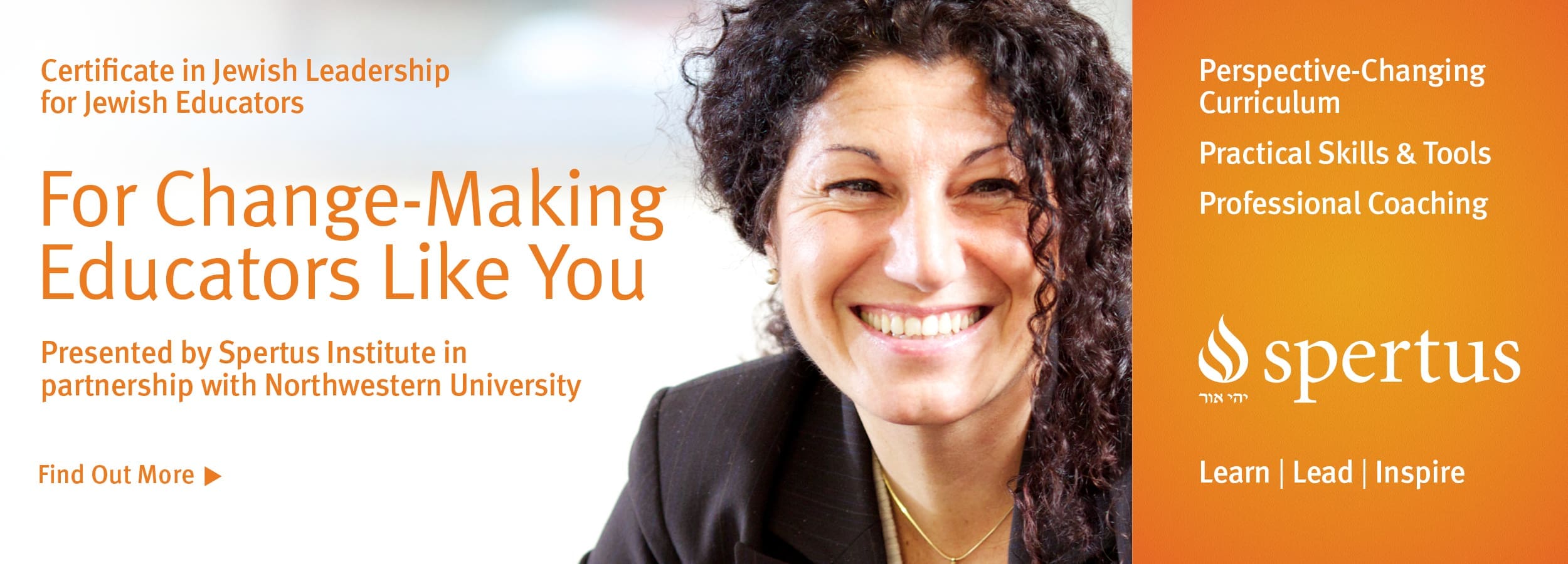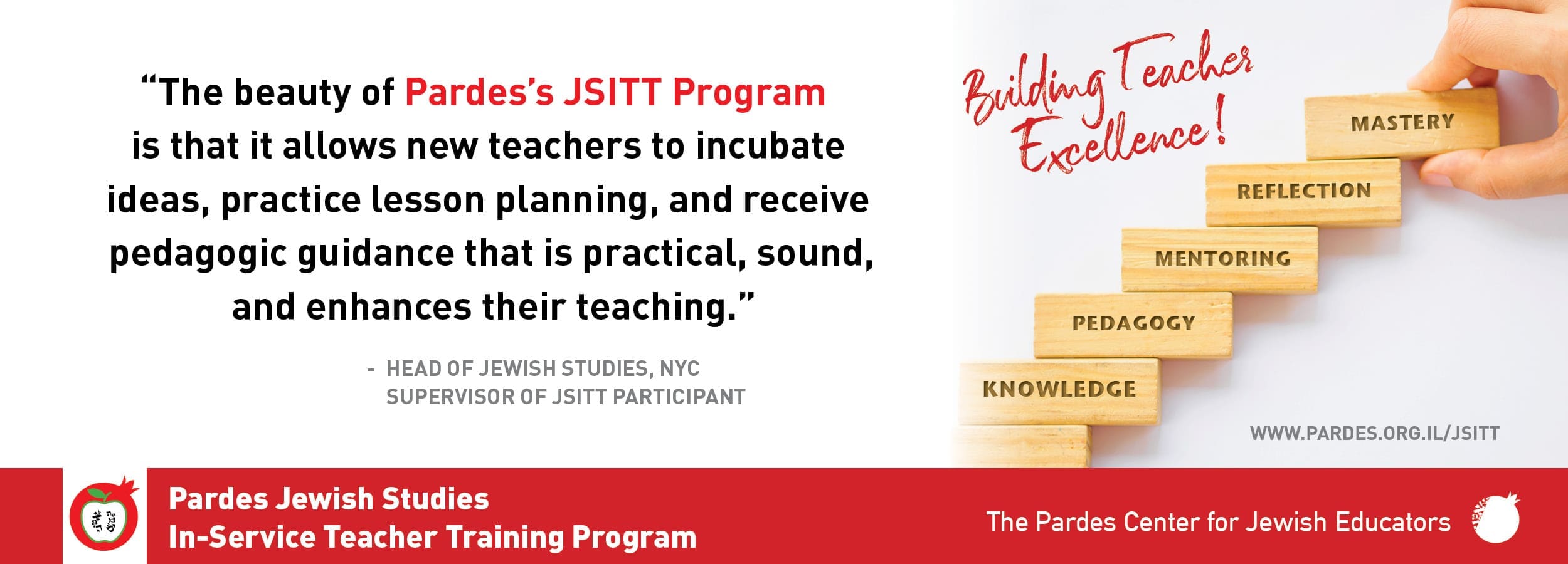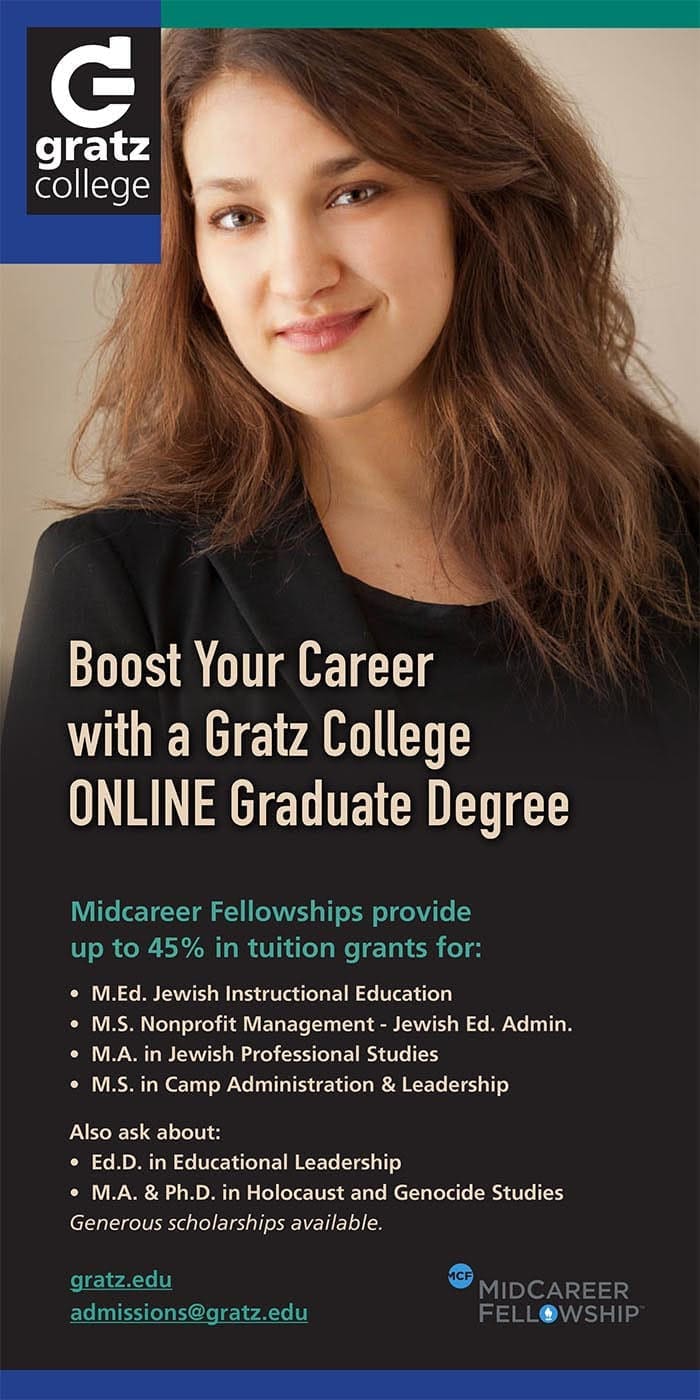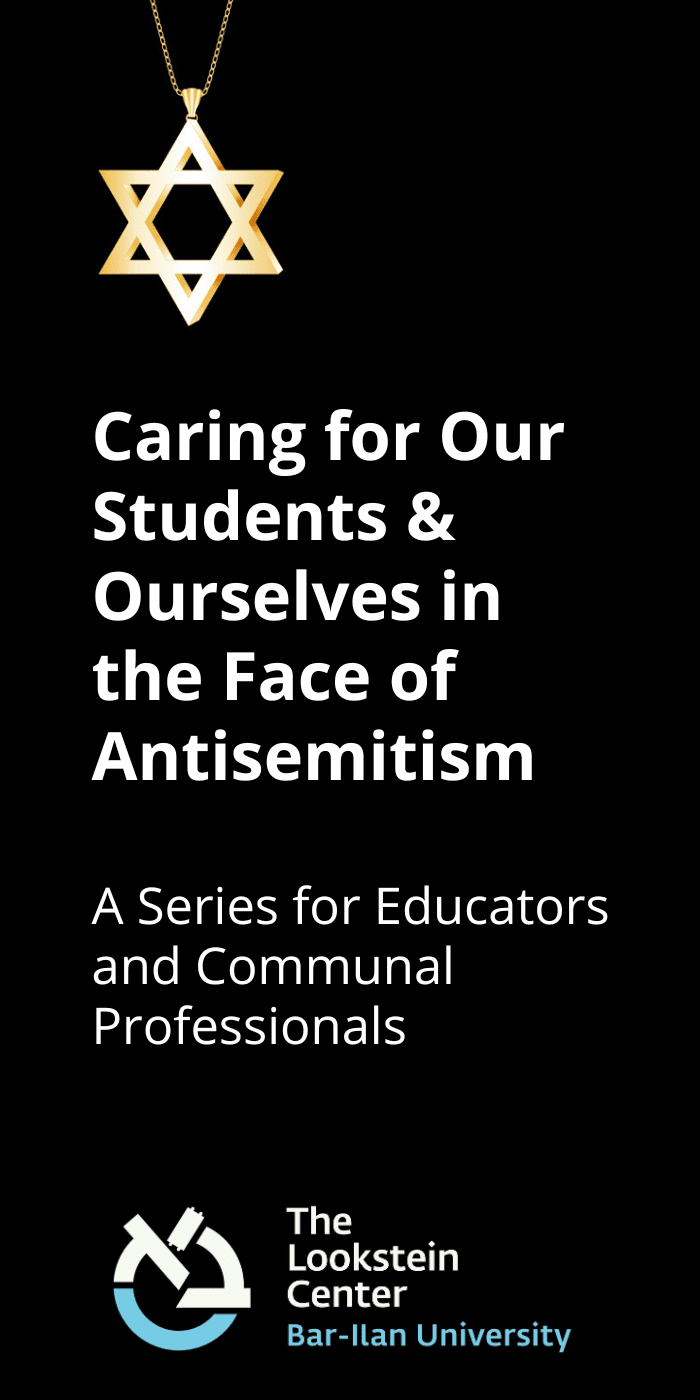The school I lead sits exactly 1.2 miles from the site of the October 27, 2018 white supremacist terrorist mass shooting that targeted three congregations housed in the Tree of Life synagogue building. My home sits around the corner, 900 feet away. I could hear the police response and shooting battle that morning reverberating through my windows and walls.
It was shocking. So close to home. But as a child of Holocaust survivors and a student of history, I was not surprised. The beating drum of a resurgence of antisemitism had been in the background for some time. Hate group activity had been increasing in western Pennsylvania and throughout the country and the world. Right-wing extremists were winning elections in heretofore progressive nations. Mass shootings were occurring almost daily in America. America felt broken.
In the wake of the synagogue attack, we—as a Pittsburgh Jewish community and as a global people—responded with defiant, full-throated, joyful affirmation of who we are as Jews. We answered hatred by demonstrating how we fortify and nourish ourselves and the world in the fullness, richness, complexity, and simplicity of our Jewish identity.
This affirmation offers a roadmap for how we educate Jews amidst rising antisemitism. I will explain—but first, let me remind you of the story of Squirrel Hill.
In Pittsburgh, our community’s work with immigrants led us routinely to celebrate the Hebrew Immigrant Aid Society, founded 140 years ago to help Jews fleeing pogroms in Russia and Eastern Europe. Today, the HIAS mission has been expanded to include refugees of all backgrounds, and the organization’s work is biblically reinforced every time we chant liturgy connected to “we were strangers in the land of Egypt.” A week before the Pittsburgh shooting, Dor Hadash, one of the three congregations in the Tree of Life building, joined with nearly 300 communities to observe HIAS’ National Refugee Shabbat.
“HIAS likes to bring invaders in that kill our people,” the shooter posted online before the attack. “I can’t sit by and watch my people get slaughtered. Screw your optics, I’m going in.”
Support for immigrants. This is reportedly what drew the ire of the white supremacist who stormed the synagogue through unlocked doors that were open to the crisp autumn air and to welcome all who would come to worship. His fear of imminent erasure, of the existential threat posed by alleged caravans of terrorists and drug dealers breaching our borders, led to the barrage of bullets that tore through the bodies of the worshippers gathered to pray in their beloved sanctuaries. It led to the murderous attack that tore through our literal and metaphorical Squirrel Hill shtetl and woke us up to the dark underbelly of America.
We would not know the exact death toll, or which neighbors and friends and family members were dead, until the next day. But by that afternoon, word was out that the Jewish Federation of Greater Pittsburgh was planning a community vigil for the following night.
And then the teens took over, with Community Day School alumni among the organizers. They had mobilized months earlier to lead a walkout after the Marjory Stoneman Douglas High School mass shooting in Parkland, Florida. This time, within hours of the shooting in their own community, they took action to organize a vigil in the heart of Squirrel Hill for that very night.
In an interfaith, multiracial show of solidarity, thousands assembled at the iconic corner of Forbes and Murray, just feet away from our JCC. The teens organized a podium, a sound system, candles, and social media outreach. They led a Havdalah service (marking the end of Shabbat and the return to the work week). They led the massive crowd in traditional psalms and prayers. They chanted the Mi Sheberakh (prayer for healing). And they spoke:
“I am a different Jew today than I was yesterday,” 15-year-old CDS alum Sophia Levin said. “Antisemitism was something that happened in history, that happened in other places,” she continued, her voice breaking. “Tree of Life used to be just a synagogue that my grandparents went to, that my Mom grew up in, that we would go to on High Holidays. And today I feel like it’s something different.”
After the vigil ended, a reporter asked Sophia if the event was a success. She nodded. “It strengthened our community,” she said. “The most important part of Judaism for me is a sense of community.”
How do we fight antisemitism?
With Jewish day school graduates like Sophia Levin. She knew how to stand up tall and proud as a Jew even hours after a deadly attack on Jews for being Jewish in her neighborhood. She and her friends knew that this was a historic moment. She and her friends also knew how to create a Jewish memorial moment, how to tie it to Shabbat, and how to offer comfort and build community through the rituals and prayers that provide structure and help us know what to say when we are inarticulate with grief.
How do we fight antisemitism?
By meeting antisemites or silenced allies where they are—in one case, the national highways. That is what JewBelong has launched in a pink billboard campaign to combat antisemitism. There are currently six digital billboards up in various U.S. cities with five slogans and the hashtag #EndJewHate.
My favorite is: “I promise to love being Jewish 10x more than anyone hates me for it.”
How do we fight antisemitism?
With facts. My son, Boaz Munro, a CDS alum and grandson of Holocaust survivors, is a student of the Holocaust and of history in general. He was terror-stricken by the silence of Jewish progressives when confronted with the antisemitic attacks against Jews in America in response to the May 2021 Israel-Gaza conflict. Their silence felt all too deafening, hearkening back to the Weimar Republic in Germany. He understood how Jews as a people were being conflated with the actions of the Israeli government and wrote a call to action that received nearly 8,000 “likes’’ and has been viewed almost 300,000 times.
Boaz challenged readers to give any other example of a time when progressives have declined to stand up for other victims of hate due to the actions of a foreign state to which they’re ethnically tied. Aiming to address the lack of historical awareness that leads to this silence, he’s also embarked on an ambitious 20-part Instagram series on “The Jews.” He has completed Chapters 1-10. I don’t know if he realized how ambitious this project was until after he started, but he is determined to take action by calling out inaction and confronting it with truth.
How do we fight antisemitism?
With open discourse. The audience for the crash course in Jewish history that Boaz is creating is not only non-Jews. Many Jews also lack historical perspective, which is why Jewish day schools like mine must find ways to have courageous conversations about the toughest topics. If we allow our students to graduate with a brittle sense of Jewish identity, we fail to instill an enduring Jewish commitment. If they are fragile at the first poke in high school or college that calls into question what we taught them about Israel or the Holocaust, it is very likely they will question everything they were taught. If they don’t understand our full history, they will accept someone else’s narrative. And while there are tough realities to face about being Jewish and about Israel, some of the narratives circulating are virulent and worse than any truths we could share. Many Jewish day schools, including mine, struggle in having these difficult conversations. I challenge and invite all of us to share what is successful at our schools. We have work to do.
How do we fight antisemitism?
Proudly. After the synagogue shooting, we did what felt simultaneously impossible and imperative—we returned to our campus that very Monday morning with the Israeli flag flying high, and to my memory, with no parents keeping their children home out of fear. Our 8th graders created a prayer service and remembrance ceremony for Tuesday at the site of a sculpture on our campus.
“You’ve given me some strength to get through today, and for that I thank you,” Tree of Life’s Rabbi Jeffrey Myers told our students.
That Friday, in a testament to the power of community, our entire school and hundreds of parents filled our gymnasium for a raucous, dance-filled Kabbalat Shabbat service as planned.
The message was clear: we are here and we are proud.
We continue to find guidance and comfort and strength in our Jewish teachings, and ledor vador, educated Jewish children like Sophia Levin, like Boaz Munro, carry us forward.
How do we fight antisemitism?
By going into our schools tomorrow and doing the work even better than we did the day before.
How do we fight antisemitism?
My father, Moshe Baran, a Holocaust survivor and partisan fighter, two years ago at age 98, said it best.
Be a better Jew.
If that sounds familiar, it is the closing argument of Bari Weiss’s 2019 book (OK, she is also a CDS alum).
If you think I should have credited her before I credited my father, here’s a short and quintessentially Pittsburgh story.
Before the pandemic, Bari’s father Lou Weiss would pick up my Dad for the 7 a.m. minyan at Congregation Beth Shalom in Squirrel Hill, part of an intrepid crew of volunteer drivers of Holocaust survivors.
One early morning ride in 2019, Lou was telling Moshe about his daughter’s new book, “How to Fight Anti-Semitism.” Upon hearing the title, Moshe said, “Well, the answer is easy. Be a better Jew.” And Lou replied, “That is her whole book in four words!”
In her final chapter, Bari asserts that, ultimately, the only response to this moment is to practice a Judaism of affirmation, not a Judaism of defensiveness.
She writes:
We should be telling that epic story, especially to the younger generation. We should not dumb it down. Big ideas changed my life. And nothing has been more powerful in my life than feeling like I’m a part of the Jewish story, a tiny link in our history. In these trying times, our best strategy is to build, without shame, a Judaism and a Jewish people in a Jewish state that are not only safe and resilient but self-aware, meaningful, generative, humane, joyful, and life-affirming. A Judaism capable of lighting a fire in every Jewish soul – and in the souls of everyone who throws in their lot with ours.
There are many forces in our world insisting, again, that all Jews must die. But there is a force far, far greater, and that is the force of who we are. We are a people descended from slaves who brought the world ideas that changed the course of history. One God. Human dignity. The sanctity of life. Freedom itself.
That is our inheritance. That is our legacy. We are the people commanded to bring light into this world.
Do we believe in our own story? Can we make it real again? I believe that we can, and that we must.
Affirming our story doesn’t mean you have to be a more traditionally observant Jew or a more activist Jew. It means knowing what it means to be a Jew. To walk proudly (even if quietly) as a Jew. To speak from a place of knowledge, context, and history, knowing that each of those can be defined subjectively and objectively, and knowing how to tell the difference. It means being committed to checking your moral compass against Jewish teachings and being prepared to find out that sometimes your moral compass—and sometimes Jewish teachings—warrant critical appraisal. Most important, affirming our story means that you are compelled and equipped to seek meaning, to find joy, and to love Judaism, however you live it, for the time-tested, life-affirming, family-affirming, justice-affirming habits of mind and heart it has been cultivating for millennia.
That’s how, together, we fight antisemitism.
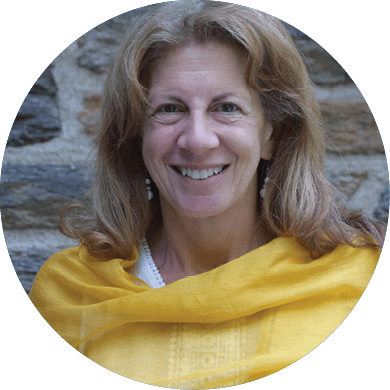
Avi Baran Munro has been the Head of School at Pittsburgh’s Community Day School since 2004. She is a first-generation daughter of two Holocaust survivors and parent of four young adults, all graduates of Community Day School.
Reach 10,000 Jewish educational professionals. Advertise in the upcoming issue of Jewish Educational Leadership.



